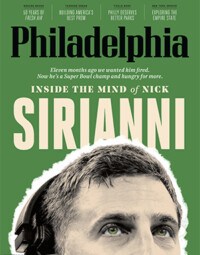Academic Search Complete provides full-text access to over 5,000 journals and magazines, including many peer-reviewed articles, plus numerous Associated Press videos covering a wide range of academic disciplines.
BioMed Central provides access to peer-reviewed open access journals in science, technology, and medicine.
BioOne Complete provides access to journals and eBooks in the biological, ecological, and environmental sciences from leading society publishers.
Cumulative Index of Nursing and Allied Health Literature (CINAHL) provides the top nursing and allied health literature available including nursing journals and publications from the National League for Nursing and the American Nurses Association.
ClinicalTrials.gov provides detailed information on nearly 400,000 clinical research studies worldwide as well as study details and results for the public, researchers, and healthcare professionals. Note that the U.S. government does not review or approve the safety or validity of listed studies.
Consumer Health Complete provides a wide range of consumer-oriented health information, covering mainstream medicine as well as complementary, holistic, and integrative approaches to health and wellness.
CREDO Reference provides access to a comprehensive collection of encyclopedias, dictionaries, and reference works across a wide range of subjects, including art, history, literature, music, religion, and science.
DOAB: Directory of Open Access Books is a database providing access to scholarly, peer-reviewed open access books, helping users find and explore a diverse range of academic resources from reputable publishers.
DOAJ: Directory of Open Access Journals provides access to high-quality, peer-reviewed open access journals across various disciplines.
EBSCO Discovery Service provides a single search interface to explore a wide range of research databases, including full-text journal articles, eBooks, and videos.
Free Medical Journals is an open-access database that provides access to a wide array of peer-reviewed medical journals.
Kanopy offers access to a diverse collection of films, documentaries, and educational videos. The platform features high-quality, thought-provoking content spanning a variety of genres, including independent films, and classic cinema.
MedPix is an open-access database from the National Library of Medicine with over 12,000 patient case scenarios, 9,000 clinical topics, and nearly 59,000 medical images, supporting medical education and research.
NewsBank provides full-text access to over 8,000 news publications, including major national and international newspapers as well as local and regional sources for a broad perspective on global and local news.
PubMed provides access to more than 37 million citations from MEDLINE, life science journals, and online books, offering comprehensive coverage of biomedical literature with many citations linking to full-text content through PubMed Central and publisher websites.
Science.gov is a search platform that explores over 60 databases and 2,200 scientific websites, providing access to over 200 million pages of federal science information, including research findings and development results.
Use Keywords
Keywords are descriptive words or important concepts. Search using just keywords rather than full sentences.
Omit words like "the", "a", "are", "it" from the search. Most databases do not search for these words and they can impact the search results.
Identify keywords from your background research.
Brainstorm synonyms for keywords and search all possible concepts.
Look up your keywords in the database Subject Headings or Thesaurus section to determine if you are using the correct phrase or spelling.
Improve Search Results by Connecting Keywords
Use AND to retrieve results with both concepts (mouse AND rat)
Use OR to retrieve either keyword (mouse OR rat)
Use NOT to omit a keyword (mouse NOT rat)
Put quotation marks around phrases to retrieve results with the exact phrase ("mouse and rat")
The asterisk (*) wildcard, also known as the truncation wildcard, is generally used to find word endings. (Metaboli* will find results with metabolism, metabolic, metabolite, metabolites, metabolizing, and metabolically)
Focus Results with Limiters
Full Text will limit results to articles with full text.
Peer Reviewed limits results to articles from peer-reviewed journals.
Scholarly Journals limits results to articles from academic publishers of both "peer-reviewed" and not "peer-reviewed" journals intended for an academic audience.
Date Published can be used to limit results to a specified date range.
There are different types of sources available in library databases. In college, students are often required to use only scholarly sources. What is a scholarly source? Let's look at the differences between scholarly and popular sources to help you identify scholarly sources.
Popular Sources


Popular sources are...
Scholarly Sources

Scholarly sources are...